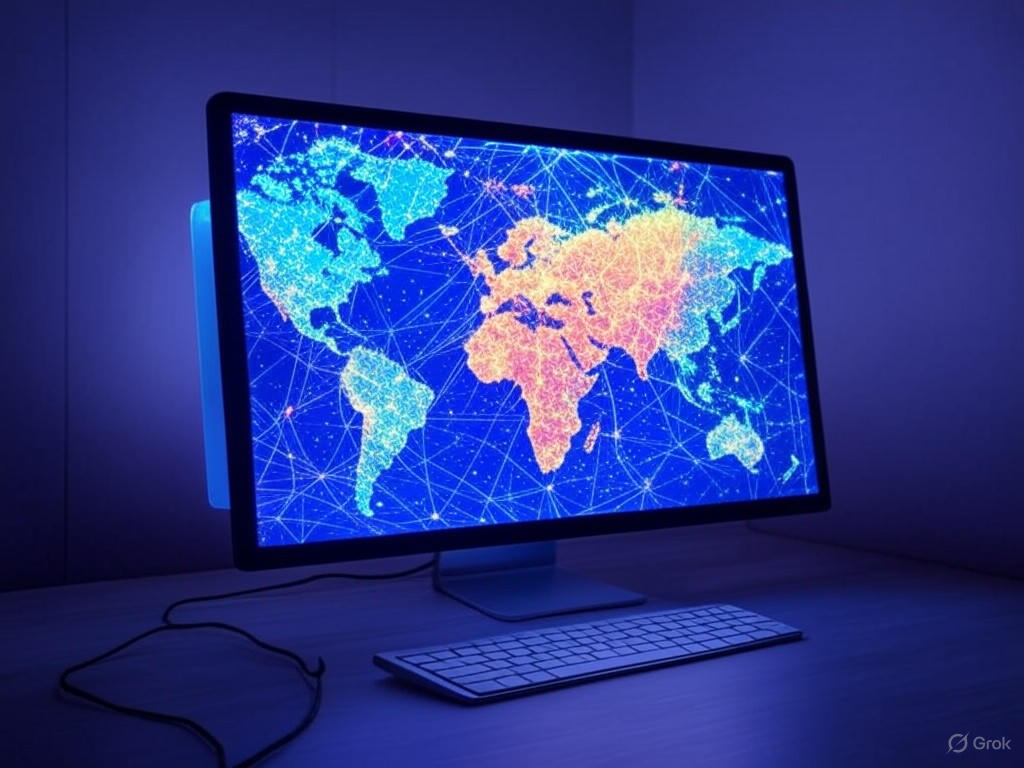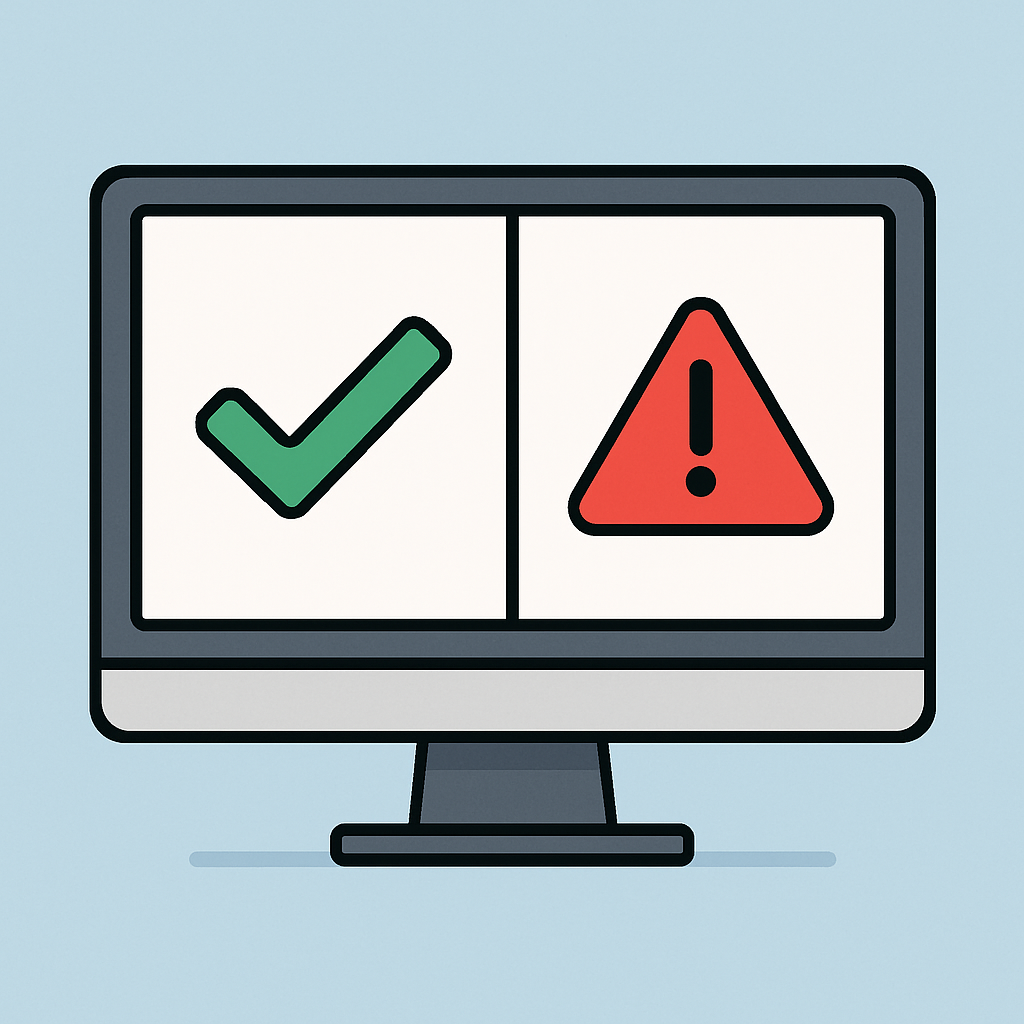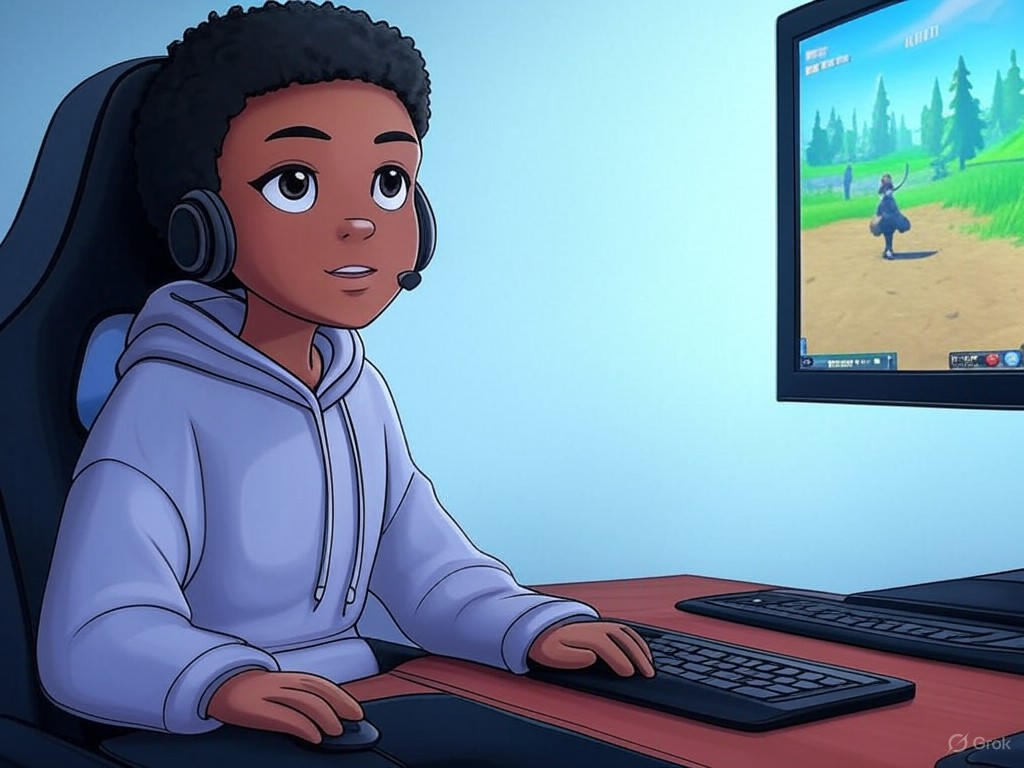
In this lesson, you will discover:
 Online spaces are different digital places on the internet where people can talk to each other, learn new things, have fun, or share information. These are not real places you can touch, but special areas you can visit using devices like computers, tablets, or smartphones.
Online spaces are different digital places on the internet where people can talk to each other, learn new things, have fun, or share information. These are not real places you can touch, but special areas you can visit using devices like computers, tablets, or smartphones.
For example, think about platforms like Instagram, where you can share photos and chat with friends, or your school's website, where you can do homework and find learning materials. These spaces help people from all over the world to connect, talk easily, and work together, even if they are far apart.
It is important to know that, just like real places such as playgrounds or libraries, online spaces have their own rules to keep everyone safe and happy. Following these rules helps make sure that your time online is positive and secure for you and others.
 Online spaces can be grouped by what they are mainly used for. Let us look at the different types in more detail:
Online spaces can be grouped by what they are mainly used for. Let us look at the different types in more detail:
Social spaces are made for connecting with friends, family, and people you know. Examples include platforms such as Facebook, Instagram, X (formerly known as Twitter), and Snapchat. In these places, you can share updates about your day, photos, and messages. This helps you stay in touch with others, even if they live far away. It is important to use these spaces carefully. Make sure what you share is suitable, and change your privacy settings to keep your information safe.
Educational spaces are for learning and finding out new things. You are using one right now – Coding Ireland! These spaces have resources to help with homework, explore subjects deeply, and learn facts through lessons and activities. They give you a way to learn more outside of your usual classroom.

Gaming spaces are online places for playing games, often with other people. Popular examples include FIFA, Fortnite, and Minecraft servers. Here, you can work with teammates, play against friends, or explore exciting worlds. These spaces help you be creative and think strategically. However, it is important to balance your gaming time with other activities and to be respectful to other players.
Informational spaces are like libraries of news, facts, and research. Examples include Wikipedia and child-friendly news websites such as RTÉ news2day. These places are useful for looking up topics, keeping up with current events, and finding information for school projects. Always check if the information is correct by looking at other trusted sources.
Community spaces bring together people who like the same things or hobbies. You can find them on forums like Reddit or fan sites for books, films, and other topics. In these spaces, you can join discussions, share ideas, and make friends with people who have similar interests. They help you work together and learn from each other, but remember to follow the rules to keep everything positive.
 It is important to understand good behaviour in online spaces. Using safe behaviours helps you enjoy these places securely and responsibly. Risky behaviours can lead to dangers or problems. In this section, we will look at examples of safe and risky behaviours. This will help you make good choices to protect yourself and others.
It is important to understand good behaviour in online spaces. Using safe behaviours helps you enjoy these places securely and responsibly. Risky behaviours can lead to dangers or problems. In this section, we will look at examples of safe and risky behaviours. This will help you make good choices to protect yourself and others.
Safe behaviours are actions that help create a secure and positive online experience. By following these, you can reduce risks and help build a respectful online community. Here are some examples:
Risky behaviours are actions that can cause harm to you or others, and you should avoid them. Knowing about these helps you stay away from problems in online spaces. Examples include:
 Now it is time for you to use what you have learned about safe and risky behaviours in online spaces. This activity will help you practise making good decisions in a situation that could happen in real life. By thinking about the scenario and writing your answers, you will get better at staying safe and confident online.
Now it is time for you to use what you have learned about safe and risky behaviours in online spaces. This activity will help you practise making good decisions in a situation that could happen in real life. By thinking about the scenario and writing your answers, you will get better at staying safe and confident online.
Scenario: Imagine you are playing in a gaming space, such as Fortnite, and a new player you have just met in the game asks for your real name and where you live. They say it is to 'team up better' and make the game more fun.
What should you do? Take a moment to think carefully about the situation. Then, think about and write down your answers to the following questions. You can use a piece of paper, a notebook, or a notes app on your device: